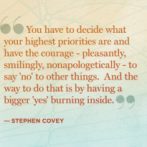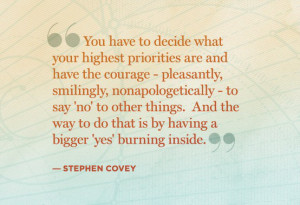Do you have a personal support system?
In my last blog, I asked if you have a strong professional support system for the challenges you may face in your career. But what about your personal support system for the struggles of everyday life? Who is in your inner circle: friends, family, your significant other?
I encourage my clients who rely solely on their significant other to broaden their circle of support and friendship. This is important for a number of reasons. First, your significant other, especially if they are your spouse, should be allowed to play their appropriate roles of partner, helpmate, lover and friend. Over-relying on them for too much or for other roles can cause imbalance in the relationship.
Second, I especially encourage my younger clients to invest in their same-sex friendships and not abandon those friends when they have a new boyfriend or girlfriend. The truth i s that boyfriends and girlfriends often come and go, but your close friends stay with you throughout your lifetime. Do friendships change over time? Of course! Not every friendship is meant to last, and they also go through seasons. But your closest friends deserve your attention summer, fall, winter and spring.
s that boyfriends and girlfriends often come and go, but your close friends stay with you throughout your lifetime. Do friendships change over time? Of course! Not every friendship is meant to last, and they also go through seasons. But your closest friends deserve your attention summer, fall, winter and spring.
So you have 1,000 friends on social media? Good for you! That’s a great way to stay in touch with people you don’t see often. But it’s not real support or intimacy. Real-time conversations with people you enjoy, trust, and can rely on is what’s needed when times get tough – and the special people in our lives need to know we’re there for them, too.
Sometimes when we are struggling with something big (or ongoing) we worry about being a burden to our friends and family. Or we’re just plain scared to be vulnerable about something painful to us. However, a good friend will make it seem like you’ve given them a gift when you share your difficulties. But if you are tired of complaining to the same friends or need an objective sounding board, don’t be afraid to reach out to a therapist or coach to get back on track. A professional can be an important part of your personal support network as you sort through feelings or decisions and move past obstacles.
So think about who is in your personal support system. Who do you need to stay in touch with, check in with for no reason, or tell how much you value their friendship? Do you need to add people to your inner circle and cultivate some new friendships? Do you need a professional in your list of contacts, just in case? Give to and invest in your personal network now, and trust it will be there when you need it.
Three cheers for friendship and support!
p.s. Your comments/likes are most welcome on this post at https://www.facebook.com/jenfrankcoaching
Read More






